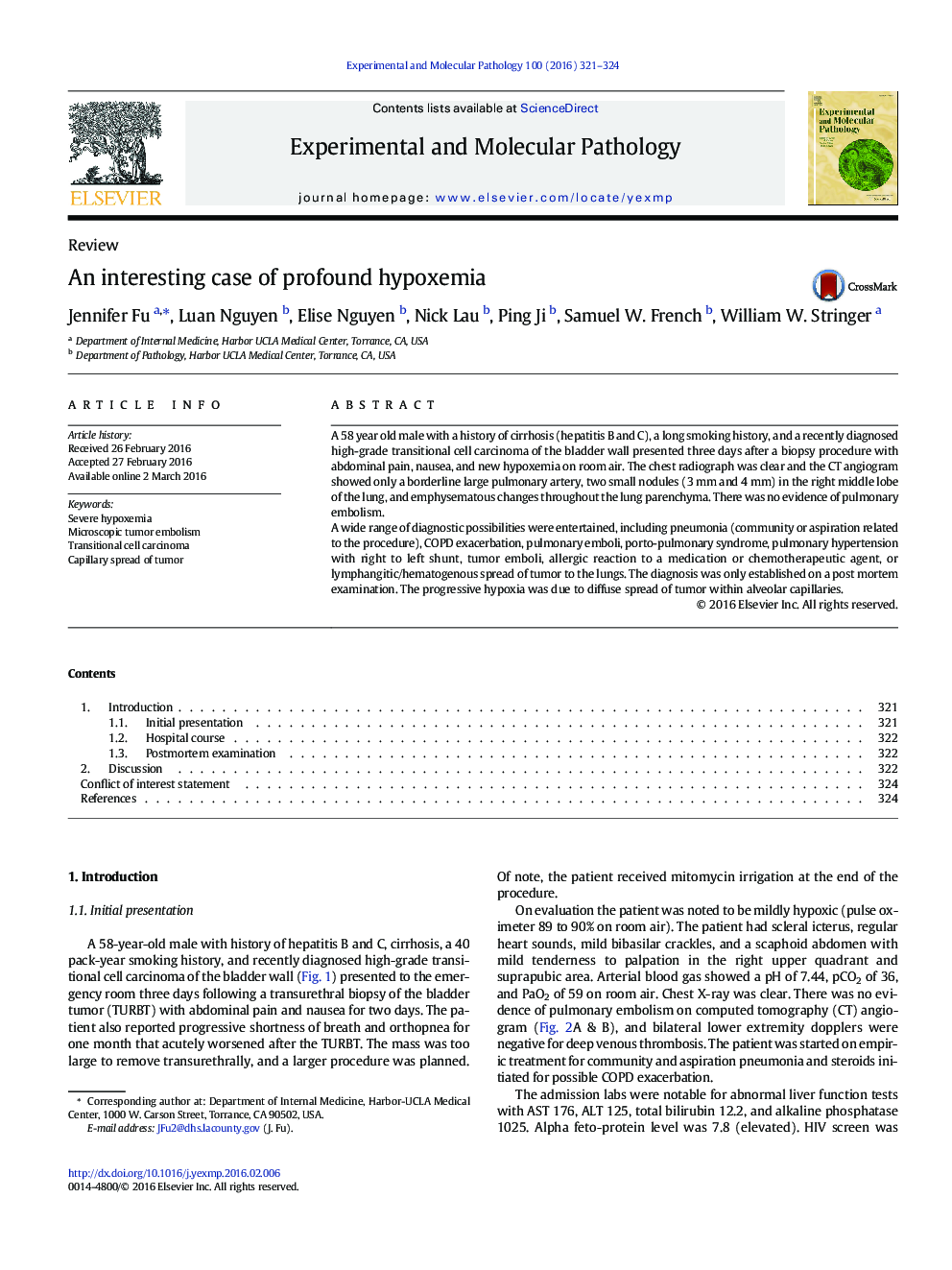| Article ID | Journal | Published Year | Pages | File Type |
|---|---|---|---|---|
| 5887978 | Experimental and Molecular Pathology | 2016 | 4 Pages |
â¢Pulmonary tumor emboli are a rare complication of malignancy.â¢Uroepithelial malignancies rarely embolize to the lungs.â¢The clinical presentation of pulmonary tumor embolism is non-specific.â¢Tumors embolize to the lungs via hematogenous routes, lymphatic spread, or both.â¢This is a unique case of severe hypoxia due to diffuse pulmonary tumor emboli.
A 58Â year old male with a history of cirrhosis (hepatitis B and C), a long smoking history, and a recently diagnosed high-grade transitional cell carcinoma of the bladder wall presented three days after a biopsy procedure with abdominal pain, nausea, and new hypoxemia on room air. The chest radiograph was clear and the CT angiogram showed only a borderline large pulmonary artery, two small nodules (3Â mm and 4Â mm) in the right middle lobe of the lung, and emphysematous changes throughout the lung parenchyma. There was no evidence of pulmonary embolism.A wide range of diagnostic possibilities were entertained, including pneumonia (community or aspiration related to the procedure), COPD exacerbation, pulmonary emboli, porto-pulmonary syndrome, pulmonary hypertension with right to left shunt, tumor emboli, allergic reaction to a medication or chemotherapeutic agent, or lymphangitic/hematogenous spread of tumor to the lungs. The diagnosis was only established on a post mortem examination. The progressive hypoxia was due to diffuse spread of tumor within alveolar capillaries.
